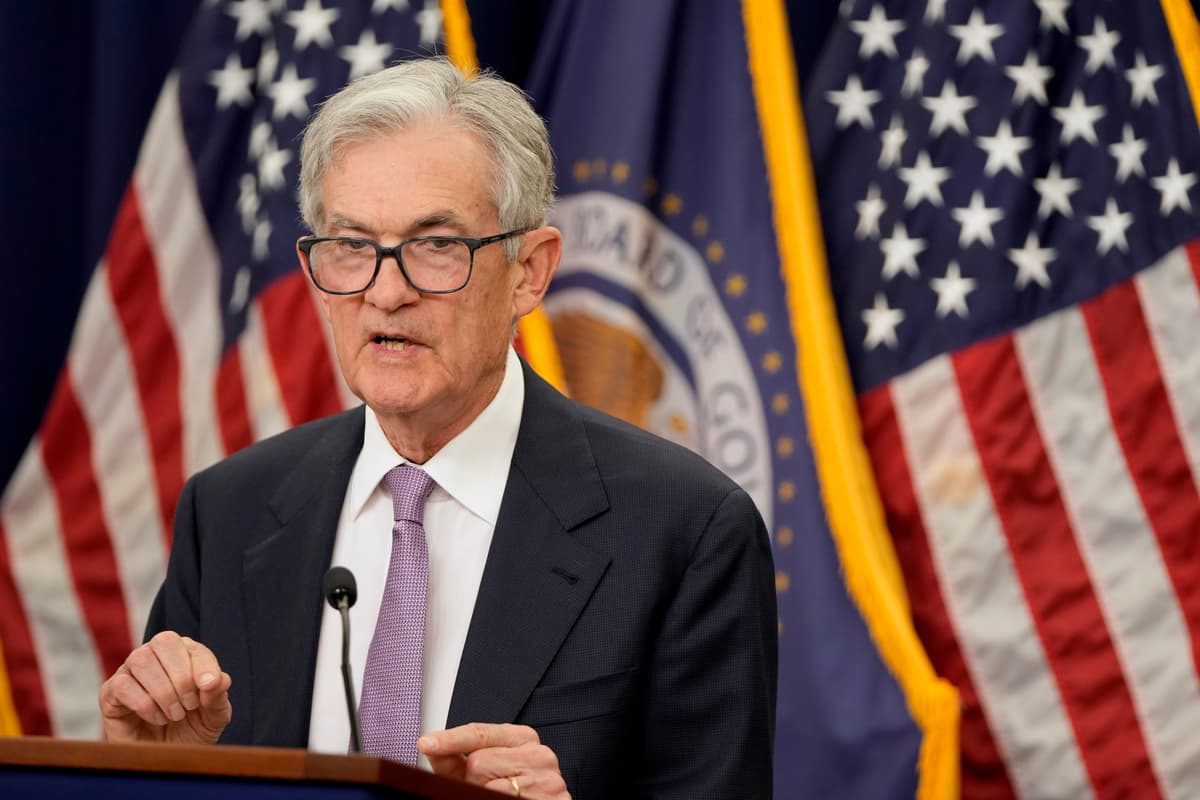Federal Reserve Chairman Jerome Powell Says He Won’t Cut Term Short — Even If Trump Asks Him To Resign
The question of whether Mr. Powell might be on the chopping block should Trump serve a second term has been the subject of debate through the course of this election cycle.

The chairman of the Federal Reserve, Jerome Powell, is vowing that he would not leave his post at the central bank prematurely should the president-elect, Donald Trump, ask him to step down.
Mr. Powell bluntly responded “no”when the question was raised during a Federal Open Market Committee press briefing on Thursday. He also said “no” when asked if he believed that he was not legally required to heed such a call from the president, and later proclaimed that the president is “not permitted under the law” to fire him anyway.
The question of whether Mr. Powell might be on the chopping block should Trump serve a second term has been the subject of debate through the course of this election cycle. Most recently, though, an anonymous senior Trump adviser told CNN on Thursday that the 47th president is not planning to oust the Fed chairman before his term ends in May 2026. The adviser cautioned, however, that Trump could change his mind.
Over the past few years Trump has offered mixed messages about Mr. Powell’s future at the Fed. Although the president-elect himself nominated Mr. Powell for the position in 2018, during his first presidential term, Trump expressed frustrations with the chairman and the Fed at large and threatened to fire Mr. Powell on several occasions.
When the economy destabilized during the onset of the Covid-19 pandemic in 2020, Trump claimed that he had the “right to remove” Mr. Powell from his post, adding that “he has, so far, made a lot of bad decisions, in my opinion.”
Supreme Court rulings over the last century have failed to resolve, definitively, what a president can do in respect of firing a chairman he has nominated to the Federal Reserve. Previous presidents have thus concluded that they lack the authority to do so.
If Trump wanted to eject Mr. Powell from the Board of Governors, he would, precedent suggests, be required to cite a specific reason that courts have historically interpreted as “inefficiency, neglect of duty, or malfeasance in office” — not policy differences.
Trump’s then-chief of staff, Mick Mulvaney, claimed back in 2018 that the president was aware that he did not “have the ability” to fire Mr. Powell. Mr. Mulvaney added that “it’s not at all unusual for a president to complain about the actions of the Federal Reserve chairman,” making “tension between the president and an independent Fed is traditional as part of our system.”
Thus, Mr. Mulvaney claimed, it shouldn’t come as a surprise that “the president’s not happy that the Fed is raising rates and we think driving down the value of the stock market.”
Congress made the central bank independent from the White House in an effort to ensure that the Fed would act in the best interest of the American economy in the long run, and not strategize to appease the president, who may have a shorter time horizon.
Moreover, the decisions of the Federal Reserve are not made at the discretion of the chairman alone; interest rate moves are voted on by 11 Fed officials during Federal Open Market Committee meetings.
Over the summer, Trump cooled down on the idea of removing Mr. Powell from his post. Trump claimed that he would allow the Fed chairman to continue his tenure “especially if I thought he was doing the right thing,” he told Bloomberg.
In the same interview, Trump advised the Fed not to cut interest rates before the November election, which would likely boost the public’s perception of Mr. Biden’s economic policies and improve the Democrats’ chances of reelection. Trump described it as “something that they know they shouldn’t be doing.”
The Fed did not heed his calls and in September Mr. Powell announced that the central bank would be making an unusually large half-percentage point interest rate cut. Trump denounced the decision as a “a political move to try and keep somebody in office.” The Fed later rejected that politics had any influence over their interest rate decision, and echoed the central bank’s long-running claim that it operates above the political fray.
During Thursday’s Federal Open Market Committee press briefing, Mr. Powell, for his part, affirmed that the outcome of the election “in the near term” will “have no effect on our policy decisions.”
In the long run, however, Trump’s economic policies are likely to influence the Fed’s approach to central banking strategy.“It’s possible that any administration’s policies or, or policies put in place by Congress, could have economic effects that over time,” Mr. Powell said Thursday, “would matter for our pursuit of our dual mandate goals.”
As a result, Mr. Powell noted, “forecasts of those economic effects would be included in our models of the economy and would be taken into account through that channel.”
Though until the policies are actually implemented, “We don’t, we don’t guess, we don’t speculate, and we don’t assume,” Mr. Powell said.

